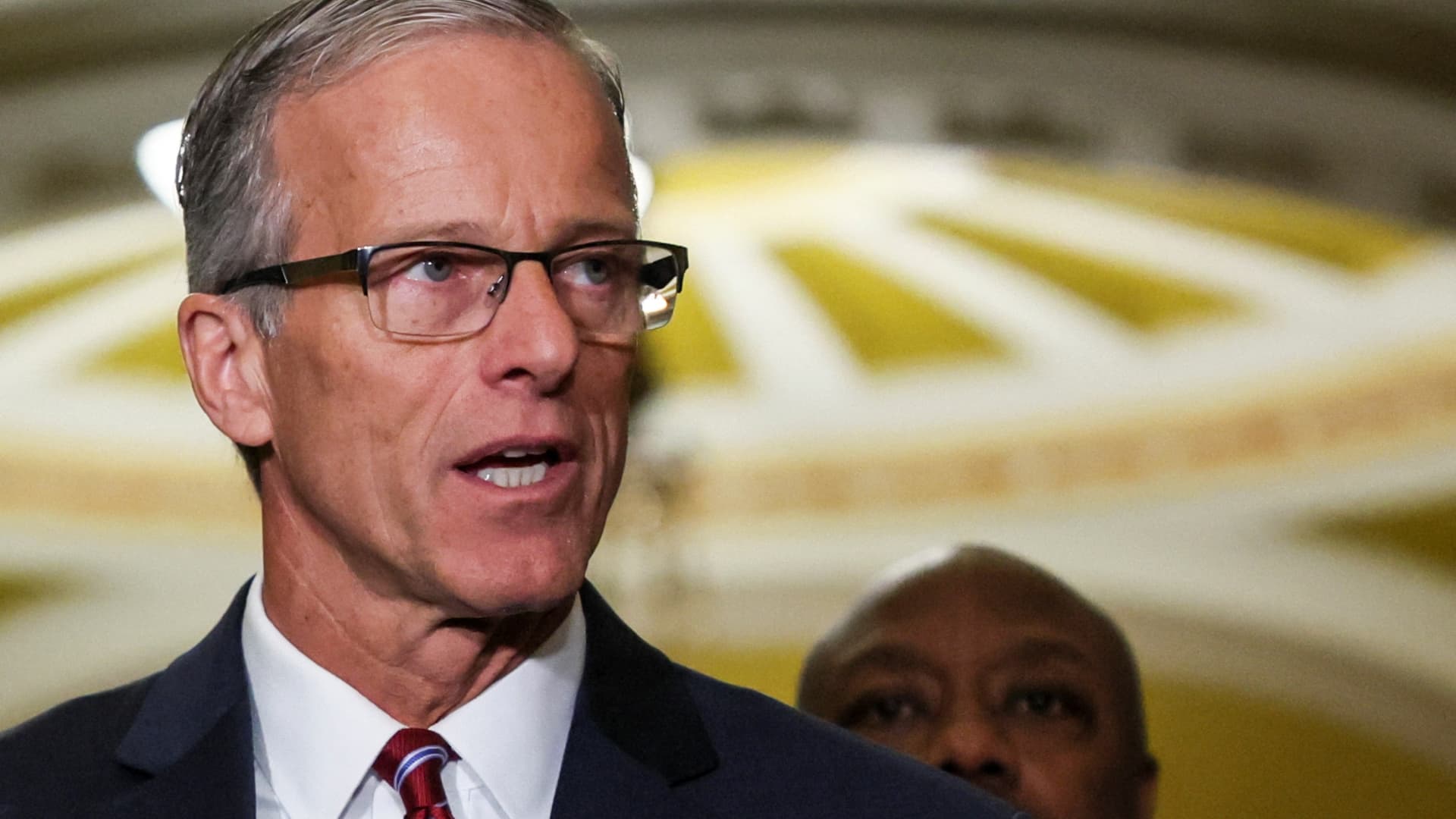Republican U.S. Senator John Thune (R-SD), who was elected to become the next Senate Majority Leader, speaks to the media after a U.S. Senate Republicans meeting to vote on leadership positions for the 119th Congress, on Capitol Hill in Washington, U.S., November 13, 2024.
Leah Millis | Reuters
WASHINGTON — Senate Majority Leader John Thune plans to prioritize four Biden-era regulatory actions to bring up for votes in Congress to invalidate them, a spokesperson for the South Dakota Republican told CNBC.
Three of these four regulations were finalized as part of former President Joe Biden’s broader effort to encourage the oil and gas industry to transition to renewable energy.
“Senate Republicans are taking action to reverse these harmful regulations using the Congressional Review Act to cut through the red tape that’s fueling inflation and burdening American energy,” Thune said in a statement to CNBC.
The first rule on the chopping block measures levels of methane emissions from oil and gas operations, and imposes a fee, known as the Waste Emissions Charge, for excessive production of the greenhouse gas.
The second regulation would require seabed mining operations drilling on the Outer Continental Shelf to perform more comprehensive archeological surveys. This rule was created partly in response to concerns from Alaskan Native groups about damage to ancient historic sites.
The third oil and gas-related regulation Thune will prioritize invalidating is a rule that raises the efficiency standards of natural gas fired consumer water heaters.
All three of these regulations have been met with fierce opposition from industry groups.
The fourth regulation that Senate Republican leaders are keen to roll back is a change to the rules that govern bank merger approvals, eliminating an expedited review track in the Office of the Comptroller of the Currency to give regulators more time to evaluate the merits of a proposed merger between banks.
The Congressional Review Act grants the House and Senate the authority to reverse regulations and executive branch rules by a simple majority vote — as long as those rules were finalized in the last 60 legislative workdays. Lawmakers will likely have about four to six months to repeal certain regulations via the act.
Republicans only need a simple majority to eliminate regulations under the CRA, not the higher threshold often required to pass the Senate. This means all four of Thune’s priorities are likely to pass.
The ability to repeal Biden’s regulations is the latest sign of the GOP’s power in Washington, now that Republicans control the House, the Senate and the White House.
“The American people gave us a mandate to fight back against these policies, and we are united in our commitment to dismantle the Biden administration’s most reckless actions, restore common sense, and deliver relief to hardworking Americans,” said Thune.
The clock is ticking on Congress’ ability to revoke Biden-era regulations using the CRA: Any rules finalized before mid-August of last year were off the table from the start, and each of these rules has its own timeline.
It’s likely the Senate will use the CRA to dismantle more rules. The last time Congressional Republicans held a trifecta, in 2017, they invalidated 16 regulations. Several other CRA actions are also making their way through the House, and would eventually require Senate approval.
Thune and his colleagues are also exploring other ways to roll back Biden’s regulatory footprint, should the deadline pass for CRA review.






